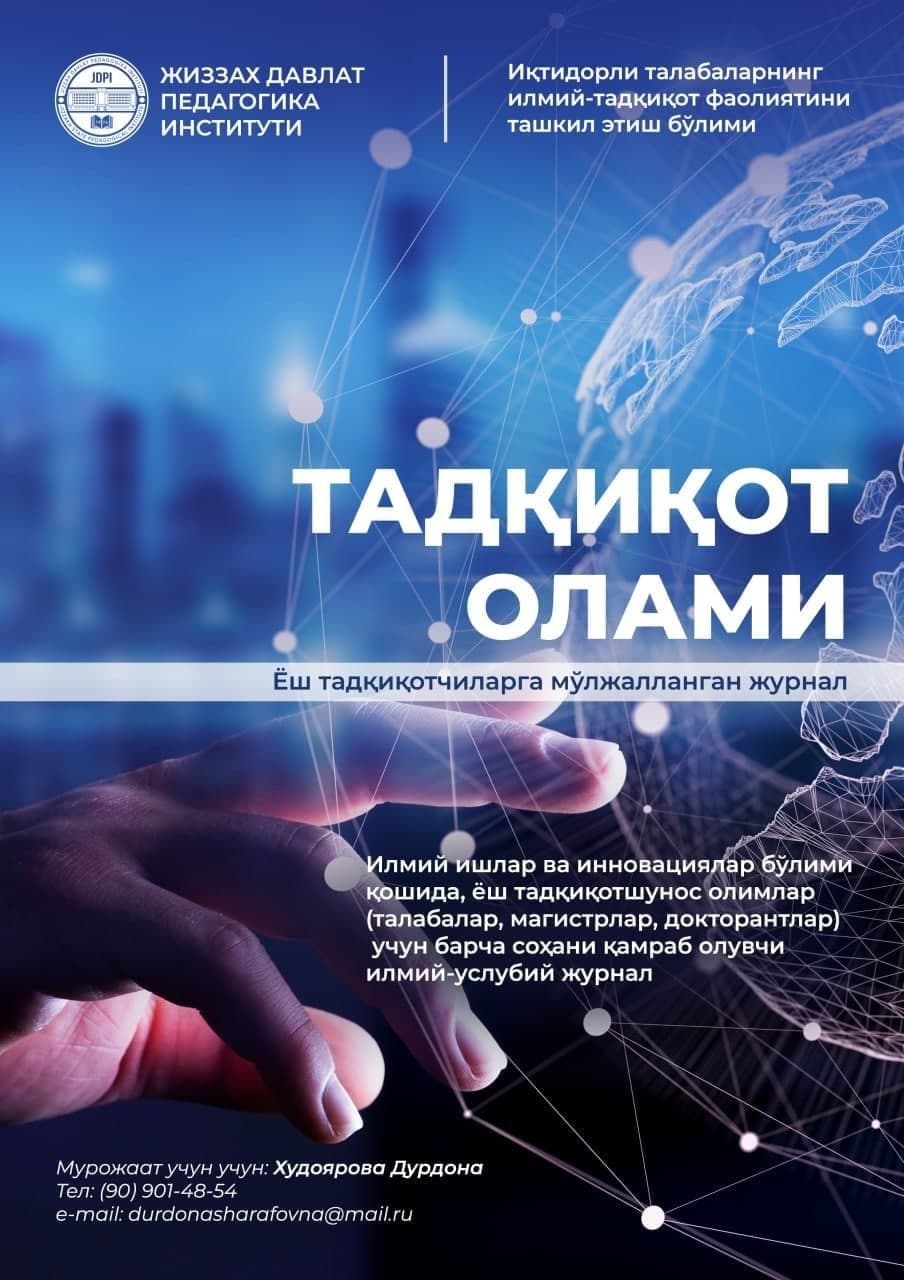Аннотация
На протяжении десятилетий школы адаптировались к технологически зависимому миру, разрабатывая курсы, должности преподавателей и учебные программы, чтобы начать изучение технологий и их изучение. Билингвизм школы дает возможность для плодотворных дискуссий по этике, поскольку культурные ценности часто влияют на ценности, касающиеся использования технологий.
Как цитировать
Библиографические ссылки
ЛИТЕРАТУРЫ 1. G.Sauberer. (2011) “There is no knowledge without terminology. How terminological methods and tools can help to manage monolingual and multilingual knowledge and communication.” Systems, Cybernetics and Informatics 8 (2): 56–60. 2. T.Busan, B. Busan (2006) The Mind Map Book, London, Thorsons. 3. A.V.D’Antoni, G.P. Zipp, V.G. Olson, T.F. Cahill (2010) “Does the mind map learning strategy facilitate information retrieval and critical thinking in medical students?” BMC Medical Education 10 (1): 61.
S.E. Nikitina, N.V. Vasilieva (1996) Experimental Systematic Dictionary of Stylistic Terms: Compilation Principles and Selected Dictionary Entries, Moscow, Russian Academy of Science
S.Edwards, N. Cooper (2010) “Mind mapping as a teaching resource.” The Clinical Teacher 7: 236–239. 5. E.Evrekli, A.G. Balim, D. Inel (2009) “Mind mapping applications in special teaching methods courses for science teacher candidates and teacher candidates’ opinions concerning the application”. Procedia – Social and Behavioral Sciences 1 (1): 2274–2279. 6. E.A.Eremin (2014) “Mind Maps for a textbook in Computer Studies”. Bulletin of Perm State Humanitarian Pedagogical University: Information Computer Technologies in Education 10: 22–38. 7. J.G.Kokorina, (2019) “The interdisciplinary nature of modern scientific knowledge and its representation in terminology (for example, archeological dictionaries.” Cognitive Studies of Language 37: 1049–1054. 8. N.V. Vasileva, A.Z. Abdurakhmanova (2017) “Frame modeling of large terminological systems: a case study of Civil Engineering terms in English”. Linguistics and Methodology of Teaching Foreign Languages 9: 94–114. 9. A.V. Ivkina, (2015) “The reasons of emergence and specifics of the implementation of the basic semantic processes in the terminology”, in O.G. Smirnova and O.N. Morozova (eds) Teaching a foreign language to students of higher and secondary educational establishments in modern times, Blagoveschensk, Amur State University 10. N. Davidko, (2011) “A cognitive approach to teaching English for Special Purposes (ESP)”. Studies about Languages 18: 82–89. 11. N.G. Kantysheva, (2013) “Conceptual modeling of interdisciplinary term systems”. CSU Bulletin 29 (320): 73–76. 12. A.Y. Shevtsova, (2014) “Applying methods of mathematical statistics to define typological characteristics of the prescriptive ecological thesaurus of civil aviation”. Tyumen State University Herald. Humanities Research. Humanitates 1: 99–106. 13. S.E. Nikitina, (1978) Thesaurus in Theoretical and Applied Linguistics, Moscow, Nauka 14S.E. Nikitina, N.V. Vasilieva (1996) Experimental Systematic Dictionary of Stylistic Terms: Compilation Principles and Selected Dictionary Entries, Moscow, Russian Academy of Science 14. S.E. Nikitina, N.V. Vasilieva (1996) Experimental Systematic Dictionary of Stylistic Terms: Compilation Principles and Selected Dictionary Entries, Moscow, Russian Academy of Science
Авторы
Tolib Absalomov
JDPI
Ключевые слова:
этика, компьютерная наука, двуязычие, билингвизм, технологииВыпуск
Раздел: Articles

